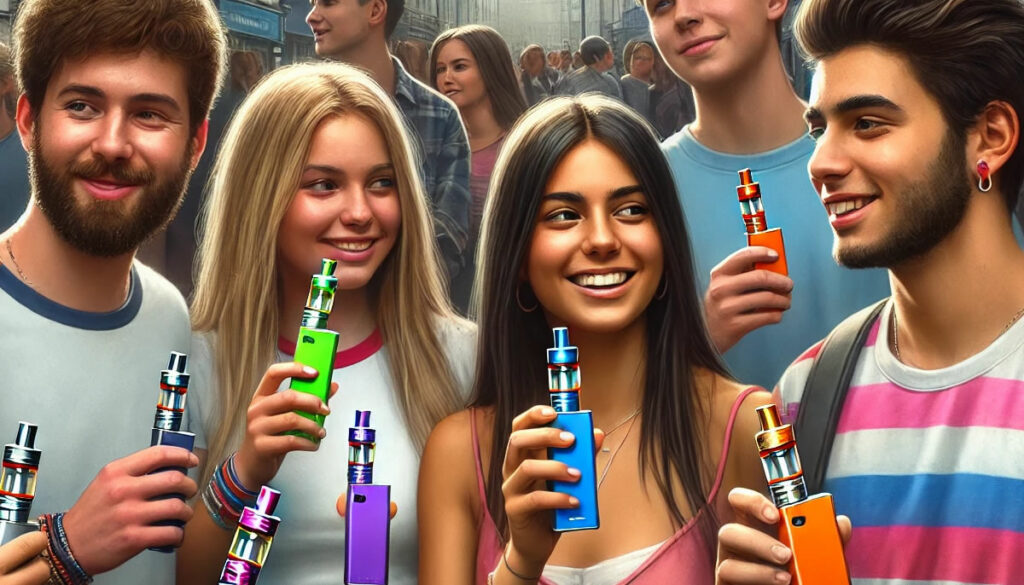A groundbreaking study conducted by researchers at the University of East Anglia has delved into the growing trend of disposable vape use among young people in the United Kingdom. The findings, published in the journal Addiction, reveal a complex interplay of factors driving this phenomenon and highlight the potential unintended consequences of strict regulatory measures.
Interchangeable Behaviors and Misconceptions
The study, which involved 29 participants aged 16 to 20, found that many young people view smoking and vaping as interchangeable behaviors, often engaging in both based on context. Alarmingly, the participants demonstrated a greater awareness of the potential harms associated with vaping compared to those of smoking, indicating a common misconception about the relative risks.
Professor Caitlin Notley, the lead researcher from UEA’s Norwich Medical School, emphasized the importance of the study, stating, “Youth use of disposable vapes has surged in recent years in the UK. Despite this increase, little was previously known about the motivations behind this trend and the experiences of young people who use these products.”
Appealing Characteristics and Social Factors
The study identified several key characteristics of disposable vapes that appeal to young people, including affordability, ease of access, and attractive designs, colors, names, and flavors. Experimentation with vapes was found to be prevalent, with many participants using them to manage stress and anxiety. Vaping was also recognized as a widely accepted social activity among peer groups.
Dr. Ian Pope, a co-author from UEA’s Norwich Medical School and an emergency physician, noted, “Disposable vapes are particularly attractive and accessible to young people in the UK, contributing to the normalization of vaping within this demographic. Despite recognizing the potential health risks, young people continue to engage in both vaping and smoking, often interchangeably.”
Potential Consequences of Strict Regulation
The study’s findings suggest that strict regulatory measures, such as banning disposable vape products or increasing their prices, could inadvertently lead young people to revert to smoking tobacco. Many participants believed that they would be able to continue using disposable vapes even if they were banned, either by stockpiling or purchasing them illegally.
Professor Notley cautioned, “Therefore any interventions to combat use of disposables may need to be accompanied by policy interventions to reduce access to illicit vapes and tobacco and increase awareness of the relative harms of tobacco compared to vapes.”
A Collaborative Effort
The research was conducted in partnership with the Norfolk and Norwich University Hospital and the Nicotine, Tobacco and Vaping Research Group at London South Bank University. The study received funding from the Norfolk and Norwich University Hospital Foundation Trust through the National Institute for Health and Care Research’s Research Capability Fund.
As the use of disposable vapes continues to rise among UK youth, this study provides valuable insights into the complex factors driving this trend and the potential unintended consequences of strict regulatory measures. The findings underscore the need for a comprehensive approach to address this issue, focusing on education, enforcement, and harm reduction strategies.
Source: University of East AngliaJournal reference: Notley, C., et al. (2024). Young people’s use of disposable vapes: A qualitative study. Addiction. doi.org/10.1111/add.16570.
- UK Announces Mandatory Vape Tax and Duty Stamps from 2027 - February 10, 2026
- Sri Lanka Travel 2026: Total Ban on Cigarettes & Vapes - February 5, 2026
- NY Tax Proposal: Hochul Targets ZYN with 75% Levy - January 29, 2026


